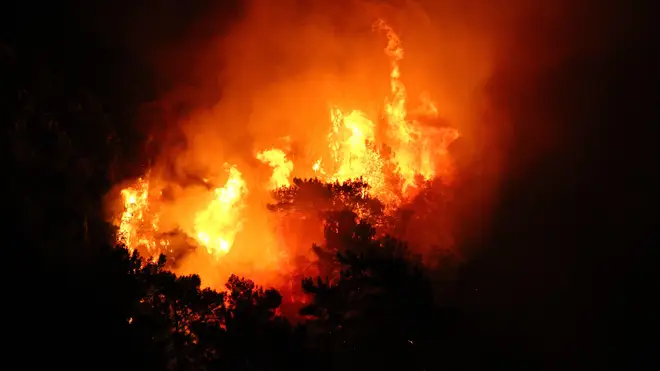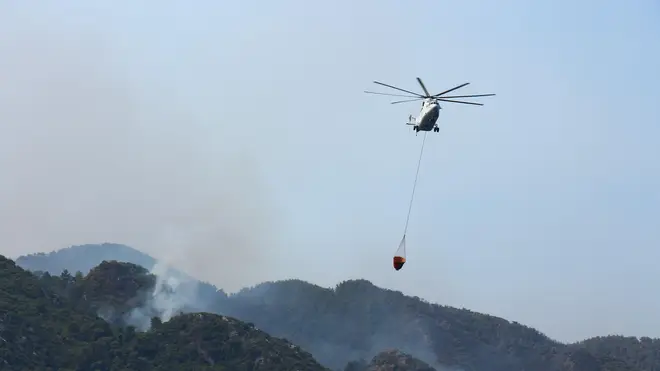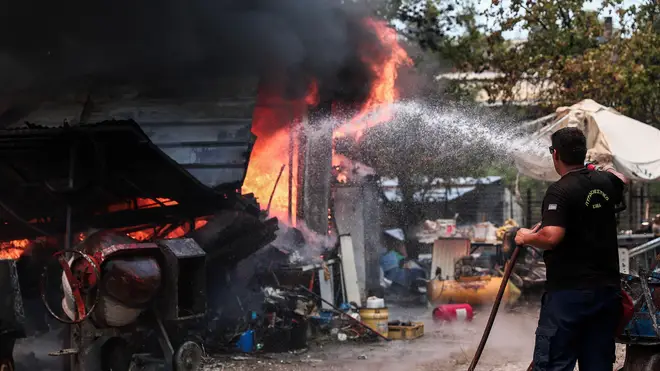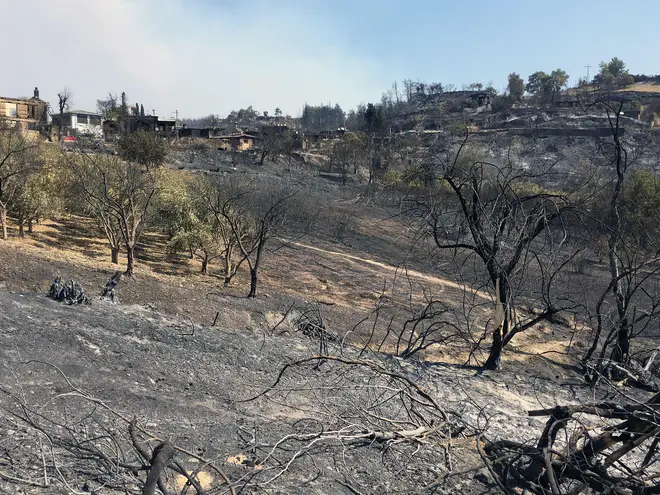
Clare Foges 6pm - 9pm
3 August 2021, 10:59 | Updated: 3 August 2021, 11:09

Parts of southern Turkey devastated by raging wildfires
A series of fires have broken out across the Mediterranean amid a Southern European heatwave.
Firefighters have spent a week tackling blazes in Turkey's forests near its beach destinations, with flames helped by strong winds and high temperatures. At least eight people have died there while tourists and residents fled resorts in boats.
Homes have been consumed by the fires and farm animals were struggling to breathe amid heavy smoke.
The heatwave across Southern Europe has been fed by hot air from North Africa, and Italy and Greece have also been affected.
Euronews reports Greece is seeing its most intense heatwave for three decades with some places experiencing 45C.
Prime Minister Kyriakos Mitsotakis said on Monday: "We are facing the worst heatwave since 1987... [causing] a burden on the electricity network."
It is anticipated the heatwave will peak early in the week.
Read more: British summers could regularly hit 40C due to climate change, Met Office warns
Read more: 'It's a crisis': Ex-Chief Scientific Adviser talks to LBC about climate change


Affected areas of Turkey include the coastal provinces of Antalya and Mugla - where 13 settlements were fully or partly evacuated - while blazes are also reported in Isparta in south-west Turkey.
A total of 130 fires that had broken out across 30 provinces since Wednesday have been extinguished.
"We are going through days when the heat is above 40C (104F), where the winds are strong and humidity is extremely low," agriculture and forestry minister Bekir Pakdemirli said.
"We are struggling under such difficult conditions."


A number of countries have helped tackle the blazes while Fahrettin Koca, Turkey’s health minister, said hundreds of people have been treated.
Turkish President Recep Tayyip Erdogan said one of the fires was started by children, while experts have pointed to climate change and human-driven accidents.